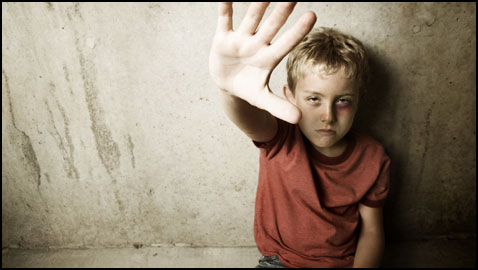Child sexual abuse in Pakistan
Hussain Khan Wala a remote village in Kasur District of Pakistan, flashed on International media due to its pedophile gang and their alleged forceful sexual abuse of over 200 children-mostly boys. Shockingly enough these Children were not only sexually abused but also the pedophile gang drugged them into submissionand made videos to wring money from the victims and their families.Some of the victims have been reported as young as 6. Some of the victims stole valuables from family homes to pay the gang to stop them from publicizing their child abuse videos. It is reported that videos were sold to buyers as low as fifty rupees.
Child sexual abuse is a widespread issue in Pakistan but it’s probably the least recognized issue in the country. The country has a strict legislation on extramarital sexual relationship under Zina (Adultery) act 1979 which prohibits all sort of extra-marital sexual relationship and forced sexual activity. However most of the child abuse cases are not taken seriously by the law enforcement agencies. A mother of a victim has clearly identified this by saying that,”I went to the police station to file a complaint, but instead of registering a (report), they took my son into custody.” Ironically, in Pakistan, a large number of child abuse cases are swept under the carpet. The victims are ‘advised’ to be silent. Usually victims are pressurized from all quarters to hush up.
The poor police response to child abuse and community’s complacency and neglect of this important matter could be exemplified by the Javed Iqbal incident of 1999. In 1999-2000 Javed Iqbal drugged and abused 100 children then killed them by throttling them, and disposed of the proofs of crime by shredding the bodies and dissolving them in a drum of acid. The incident clearly uncovered the inappropriateness of the police response as parents of 17 of the victims had reported their missing children, yet only one report was registered by the police. Javed Iqbal barbaric acts were never identified by the Police but he himself confessed the crime by sending police photographs of his victims along with a confession letter.
Child abuse is a taboo issue in the country as the victims and their families are not supported by the society but insulted and mortified. In this case also the victims remained silent for years as they felt deep shame. The victims’ families feared the consequences of reporting and felt that they have nowhere to turn or nobody to talk to. This attitude stanches from cultural concepts of shame and family honour. Although very less reported and action the child abuse in Pakistan often take place in all circles of life: families, schools, workplaces etc. It is estimated that 9 out of 10 of 1.5 million street children are victim of child abuse in the country.
As identified in one of the ‘save the children’ reports, hundreds of young boys work in workshops and repugnant hotels near coach stations, such as the Pir Vadhai bus station in Rawalpindi. Local hotel owners promote their businesses by employing children who sexually attract their customers. According to several reports, the North-western Frontier Province and other tribal areas of the country are notorious for men keeping boys specifically for sex. This strictly male- to-male practice increases the status and prestige of the man, depending on the number of ‘good-looking’ boys he has with him. There are no cultural or social mechanisms to check this infamous practice. On the contrary, it is publicly noticeable, unlike sexual abuse of girls, which is hidden and outwardly condemned.
U.S. State department Human rights’ report 2013 has also identified that in Karachi there were cases of sexual abuse of children in madrassas (religious seminaries). In 2011 Sindh police raided a Deobandi madrassa on the outskirts of Karachi and discovered 68 captive boys, many of whom reported sexual abuse by the custodians of the madrassa.
It is also very unfortunate that the educational system does not allow any discussion of the issue. Furthermore, there is no safe space for reporting such cases. Police are usually unresponsive to the impact of child sexual abuse, and many medical professionals do not grasp the seriousness of this crime and often support the dominant notion of family dignity.
Government of Pakistan has approved The National Plan of Action for Children in 2006. A National Commission was also setup for Child Welfare and Development and to safeguard rights of the Children. The commission was to covers all areas of child health, education and protection. With a monitoring system annexed to the plan, the time frame under which the goals would had been met was 2015. But it appears that the concerned departments have failed to safeguard the Children in Pakistan.
Pakistan has endorsed the Convention on the Rights of the Child and is also a signatory of the Stockholm Agenda and Plan of Action against Sexual Exploitation of Children. The Stockholm Agenda demands that signatories strengthen strategies, promote attitudes and facilitate practices to ensure child protection and rights.

